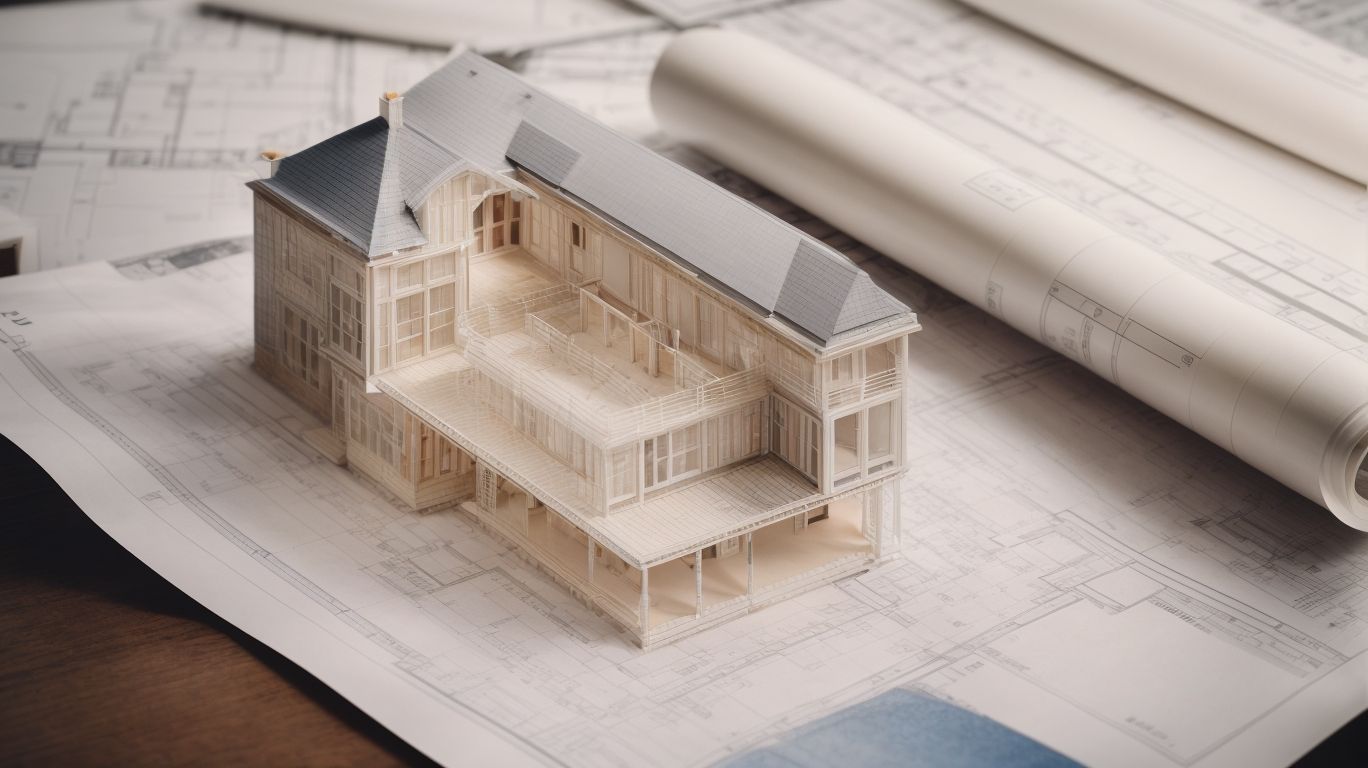
Ensuring Your Home’s Integrity: The Role of Structural Inspections
Structural inspections are a crucial part of homeownership, ensuring the integrity and safety of your property. These inspections can identify potential issues, maintain the stability of your home, and even aid in real estate transactions.
But when should you get a structural inspection? Typically, it’s recommended to get one before purchasing a new home, after a natural disaster, or if you notice any signs of structural damage. “An ounce of prevention is worth a pound of cure,” as the saying goes.
During a structural inspection, a certified inspector will thoroughly examine the foundation, walls, roof, and other structural components of your home. They will also check for any signs of water damage, mold, or pests that could compromise the structural integrity of your home.
Choosing a reputable and experienced structural inspector is crucial. Look for someone who is licensed, insured, and has a good track record. You can also ask for referrals from friends, family, or your real estate agent.
If any issues are found during the inspection, don’t panic. It’s essential to address them promptly to prevent further damage. Your inspector can provide recommendations for repairs or refer you to a specialist if needed.
In conclusion, structural inspections are a vital aspect of homeownership that should not be overlooked. They can save you time, money, and stress in the long run by identifying and addressing potential issues before they become major problems. So, make sure to schedule regular structural inspections to keep your home safe and sound.
What Are Structural Inspections?
Structural inspections are comprehensive examinations of a property’s building structure and components, ensuring the home’s integrity and safety.
Structural inspections are essential for evaluating a building’s strength and identifying potential issues like foundation problems, water damage, and structural deterioration. These inspections also determine the overall condition and stability of a property, providing valuable insights for homeowners, buyers, and sellers.
By carefully evaluating key elements such as walls, floors, roofs, and support systems, these inspections help individuals make informed decisions about property maintenance, renovations, or real estate investments. Ultimately, they ensure a safe and secure living environment for all parties involved.
Why Are Structural Inspections Important?
Structural inspections are crucial for maintaining the safety and stability of a property, ensuring compliance with building codes and regulations.
These inspections are essential for maintaining the integrity of a building. They identify potential issues like corrosion or inadequate construction, allowing for proactive maintenance to prevent safety hazards. Structural inspections provide assurance to property owners and occupants, promoting a safer and more sustainable built environment.
Identifies Potential Structural Issues
Structural inspections play a vital role in identifying potential structural issues that may impact the property’s value and pose risks due to structural deficiencies.
During inspections, professionals carefully examine the foundation, walls, roof, and other structural components to determine if there are cracks, water damage, or signs of deterioration.
Any structural issues uncovered can have far-reaching implications for the property’s value and overall structural integrity. It is crucial to assess these findings thoroughly as they can affect the safety and long-term maintenance costs of the property.
Taking proactive measures to address such deficiencies can help maintain or enhance the property’s value over time.
Ensures Safety and Stability of the Home
One of the primary objectives of structural inspections is to ensure the safety and stability of the home. This often involves the expertise of a qualified structural engineer.
Structural engineers are responsible for evaluating the stability of buildings, assessing factors such as foundation strength, load-bearing capacity, and the integrity of supporting elements. Through thorough inspections, they can identify potential issues that may compromise the safety of a home and provide recommendations for necessary repairs or reinforcement.
Not only does this protect the inhabitants of the home, but it also ensures long-term structural stability, reducing the risk of costly damages and structural failures.
Helps with Negotiations in Real Estate Transactions
Structural inspection reports provide valuable insights that can influence negotiations in real estate transactions, especially regarding repair recommendations and potential structural issues.
Inspection reports are essential for buyers and sellers alike, providing a comprehensive evaluation of a property’s condition. They can greatly influence repair negotiations by outlining necessary fixes and potential structural issues, helping parties make informed decisions. Additionally, these reports can aid in resolving repair disputes by providing an objective assessment of the property’s condition, ultimately playing a crucial role in the negotiation process.
When Should You Get a Structural Inspection?
Knowing when to obtain a structural inspection is essential, particularly before purchasing a property to detect foundation problems and existing structural damage.
It is crucial to schedule a property inspection at critical timings during the purchasing process to ensure that the foundation is sturdy and free from any potential structural issues.
By conducting an inspection before finalizing a property purchase, buyers can prevent future expenses and inconveniences associated with addressing hidden foundation problems. Identifying any structural damage early on can save homeowners from significant repair costs down the line, making it an important step in the due diligence process.
Before Purchasing a Home
Prior to purchasing a home, conducting a structural inspection is essential for evaluating load-bearing walls, identifying settlement issues, and planning necessary home improvements.
When purchasing a property, it’s crucial to have a thorough understanding of its structural integrity. This helps buyers make informed decisions and ensures that the property meets their needs. Through a comprehensive inspection, any potential issues such as load-bearing walls or settlement concerns can be identified and addressed. This allows for proper planning and budgeting for any necessary repairs or renovations. Taking a proactive approach not only protects the investment, but also ensures the safety and comfort of future residents.
Before Major Renovations
Before embarking on major renovations, it is advisable to conduct a structural inspection to assess the building material integrity and establish a maintenance schedule for structural components.
This assessment of the construction material integrity is crucial as it ensures that the structural elements are capable of withstanding the proposed renovations.
By establishing a maintenance schedule for structural components, potential issues can be identified and addressed proactively, preventing expensive repairs in the future. This process also provides a comprehensive understanding of the building’s overall structural health, allowing for informed decisions when planning and executing renovation projects.
After Natural Disasters
Following natural disasters, conducting structural inspections becomes imperative to assess and address water damage, structural cracks, and prioritize essential structural maintenance.
Structural inspections are crucial for determining water damage, identifying weaknesses like structural cracks, and creating plans for necessary maintenance. These inspections play a vital role in protecting buildings and ensuring their resilience for future challenges. They provide insights for restoring structural integrity, addressing vulnerabilities caused by disasters, and improving building safety and longevity.
What Does a Structural Inspection Cover?
A comprehensive structural inspection encompasses evaluations of the foundation, roof, walls, plumbing, electrical systems, HVAC, and exterior features to ensure holistic property assessment.
This thorough evaluation includes scrutinizing the plumbing for potential leaks, blockages, and proper drainage. It also ensures that the property’s water supply and waste disposal systems are in optimal condition.
Load-bearing walls are closely inspected to identify any signs of stress, cracks, or structural weaknesses. These are vital for the property’s overall stability.
The examination of exterior features such as windows, doors, siding, and landscaping is essential to identify any issues affecting the building’s overall structural integrity and security.
Foundation and Footings
Evaluating the foundation and footings is a crucial aspect of structural inspections. It often requires the expertise of a structural engineer to assess settlement and ensure stability.
Structural engineers play a vital role in examining the underlying soil conditions and the structural components of a building. This includes identifying potential settlement issues and devising solutions to maintain the structural stability of the building.
These professionals employ various techniques such as soil testing, geotechnical assessments, and advanced modeling to accurately evaluate the impact of settlement on the building’s foundation. Based on their findings, they can recommend measures to mitigate any potential risks and ensure the long-term integrity and safety of the structure.
Roof and Attic
Structural inspections include thorough assessments of the roof and attic to identify potential water damage, structural deficiencies, and ensure the integrity of the property’s upper structure.
These evaluations are crucial safeguards, as water damage in the roof or attic can lead to extensive structural issues and compromise the overall stability of the property.
When overlooked, water damage may gradually weaken the roof’s framework and insulation, eventually seeping into the property’s interior, causing mold and compromising the air quality.
Identifying any structural deficiencies in the roof or attic early on can prevent costly repairs and ensure the safety of the entire property.
Walls and Ceilings
Assessing walls and ceilings during structural inspections is essential for identifying cracks, ensuring compliance with building codes, and documenting findings in the inspection report.
This process plays a crucial role in evaluating the structural integrity and safety of a building. Identifying cracks in walls and ceilings can signal potential weaknesses or structural issues that need to be addressed promptly.
Ensuring compliance with building codes is vital for maintaining the safety and stability of the structure. The documentation of these observations in the inspection report serves as a valuable record for future reference and can aid in making informed decisions regarding maintenance and repairs.
Plumbing and Electrical Systems
Structural inspections involve assessments of plumbing and electrical systems to identify any deficiencies and establish a maintenance schedule for optimal functionality.
This comprehensive evaluation is crucial for ensuring the safety and efficiency of a property’s infrastructure.
Detecting issues such as leaks, corrosion, faulty wiring, or outdated components can prevent potential hazards and costly repairs in the future.
By integrating these inspections into a proactive maintenance schedule, property owners can effectively address any issues and uphold the functionality of their plumbing and electrical systems.
This ultimately contributes to the longevity and value of their property.
HVAC Systems
The assessment of HVAC systems in structural inspections is crucial for detecting structural damage and formulating repair recommendations to ensure optimal operational performance.
This thorough assessment provides insights into the integrity of the building’s structure and the impact of HVAC systems on its functionality. By identifying potential issues early on, corrective actions can be taken to prevent further damage and ensure the efficient and safe operation of the HVAC systems.
The findings from these assessments play a vital role in guiding repair and maintenance recommendations, ultimately contributing to the longevity and reliability of the entire building structure.
Exterior Features
Evaluating the external features of a property in structural inspections is essential for assessing its value, integrity, and identifying potential structural deficiencies that may impact its overall condition.
Inspectors evaluate a property’s maintenance, durability, and potential future expenses by examining exterior elements such as the roof, foundation, siding, and windows. This also provides insight into the property’s curb appeal, which can greatly affect its market value and appeal to potential buyers.
Early identification of structural deficiencies can save homeowners from expensive repairs and protect the property’s structural integrity in the long run.
How to Choose a Structural Inspector?
Selecting a qualified structural inspector is pivotal, ensuring thorough assessments, detailed inspection reports, and recommendations for home safety and structural maintenance.
A competent structural inspector should possess relevant qualifications and certifications. This showcases their expertise in evaluating the structural integrity of properties. The inspection reports they provide should be comprehensive and clearly document any issues or potential hazards that may affect the safety of the home.
It is also important to consider inspectors who prioritize preventive measures and provide guidance on structural maintenance. This can help prevent future risks and ensure the longevity of the property.
What Happens After a Structural Inspection?
Following a structural inspection, the next steps typically involve reviewing repair recommendations, establishing a maintenance schedule, and considering potential home renovation projects.
This process is crucial for ensuring that any identified issues are promptly addressed and that the property is maintained in optimal condition.
Reviewing the repair recommendations allows homeowners to prioritize and budget for the necessary repairs.
Establishing a maintenance schedule helps to prevent future issues and prolong the life of the property.
Considering potential home renovation projects can add value and enhance the functionality and aesthetic appeal of the home.
What If Issues Are Found During a Structural Inspection?
In the event of issues discovered during a structural inspection, immediate attention to critical components such as support beams and load-bearing walls is essential to ensure structural stability.
It’s crucial to address any concerns with these vital structural elements promptly, as they play a pivotal role in maintaining the overall stability of the building.
Ignoring such issues can lead to potentially hazardous situations, compromising the safety of the structure and its occupants.
By prioritizing the inspection and maintenance of support beams and load-bearing walls, property owners can proactively safeguard against future structural problems, ensuring the longevity and integrity of their buildings.




No Comments